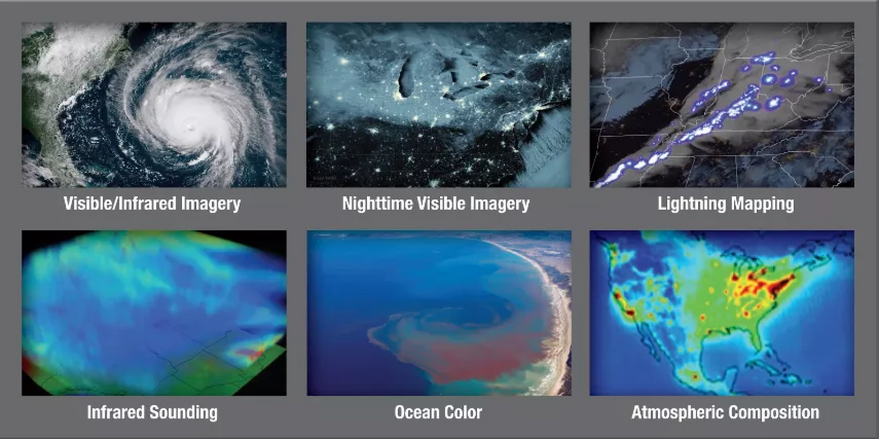SAN FRANCISCO – BAE Systems, the former Ball Aerospace and Technologies Corp., won a $365 million contract May 1 to develop an air quality sensor for a U.S. geostationary weather satellites.
The GeoXO Atmospheric Composition instrument, known as ACX, will monitor air quality and measure pollution from the National Oceanic and Atmospheric Administration’s next-generation Geostationary Extended Observations satellites.
ACX, a hyperspectral spectrometer, will measure ultraviolet to visible light. The instrument is designed to provide hourly observations of pollutants emitted by sources including power generation, transportation, oil and gas extraction, volcanoes and wildfires. Secondary pollutants generated in the atmosphere also will be tracked.
Timely Alerts
“GeoXO’s atmospheric composition observations, and forecasts that rely on those observations, will relay more accurate and timely air pollution alerts to the public,” Pam Sullivan, director of NOAA’s Office of Geostationary Earth Orbit Observations, told SpaceNews by email. “Americans who heed these alerts can avoid exposure to poor air quality, potentially lowering premature mortality and health care costs and increasing economic productivity.”
The cost-plus-award-fee contract covers development of a single flight instrument and options for additional sensors. BAE also will provide support for 10 years of on-orbit operations and five years of on-orbit storage for each air quality sensor.
“By providing continuous observations and measurements of atmospheric composition, ACX data will improve air quality forecasting and monitoring and mitigate health impacts from severe pollution and smoke events, such as asthma, cardiovascular disease and neurological disorders. ACX data will also help scientists better understand linkages between weather, air quality and climate,” according to the news release.
The GeoXO Program is the follow-on to the Geostationary…
Read the full article here

